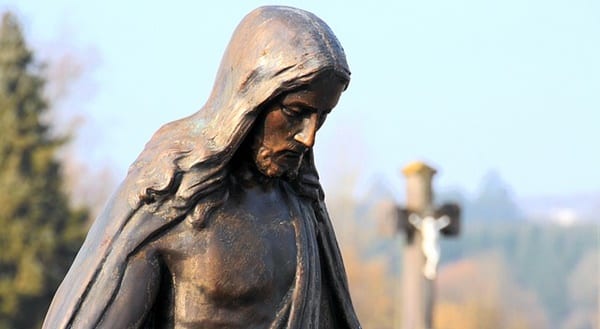I arrived at the airport after a long flight. After getting off the plane and picking up my luggage, I opened my Uber app. I tapped on “Uber X” and a young man named Bakr drove around the corner 10 minutes after I entered my address.
I instantly recognized the name Bakr because I studied Islam in graduate school. Abu Bakr was one of Muhammad’s closest advisers and was the first person to become a Muslim outside of Muhammad’s family. Abu Bakr was the first Muslim Caliph. He is largely revered by Muslims everywhere. His contemporaries called him As-Saddiq, or The Truthful.
Abu Bakr is a big deal in the Islamic world, so I hoped I could talk with my Uber driver about Islam.
After exchanging some usual greetings and talking about his experience with Uber, I opened the door to a conversation on religion. “So, Bakr, are you a Muslim?”
A verbal dam broke open as Bakr spoke about his faith and love for others. He grew up in Morocco, but at age 17 he found himself living in the United States. He drove for Uber at nights and went to school during the days.
Bakr is a medical student. Islam, he said, motivates him to heal other people. It doesn’t matter whether they are Jewish, Christian, Muslim, Hindu, or atheist. He just wants to heal people.
Bakr felt called by Allah to serve his fellow human beings. Now he drives people from here to there, making sure they arrive safely and have a pleasant experience. Soon, Bakr will be operating on people, making sure their bodies have the best chance to heal.
Mercy and Compassion, the fundamental attributes of God in the Qur’an, flowed through Bakr. He never said a mean word when he talked about his passengers. I tried to bait him. “Surely,” I said, “driving at night you must come across some strange characters.” He responded, “They are just people that need to go somewhere. So, I take them.”
I couldn’t resist, so I asked my Muslim driver what he thought about Donald Trump. What happened next amazed me.
Without any anger in his voice, he admitted the pain he has experienced from statements made by President Trump. After all, Trump has an extensive list of negative statements he’s made about Muslims. For example, Trump claimed that American Muslims cheered on September 11, 2001 when the World Trade Center fell. Many have refuted this claim, but he stuck to the lie. And when asked if Islam is an inherently peaceful religion that a few followers have hijacked, or if it’s inherently violent, Trump said “… there’s something going on … We are not loved by many Muslims.”
Trump is wrong. Bakr loves the United States, as do countless Muslims throughout the world. I asked Bakr if he eventually wanted to move back to Morocco. He said he loves the freedoms and people of United States too much to move back. This is his home.
I was amazed because Bakr didn’t show any hatred for Trump, despite the fact that Trump has caused him and his fellow Muslims so much pain. Ultimately, Bakr thinks Trump is created by a God who loves him. Trump doesn’t deserve Bakr’s hatred. He deserves his mercy.
Bakr taught me that we need to change the narrative when it comes to Islam. While Trump is a child of God and deserves our compassion, he doesn’t deserve to control the narrative about Islam. We need to take it back. The Qur’an repeatedly calls God “the Most Merciful, the Most Compassionate.” And it invites Muslims to follow God’s all-inclusive Mercy and Compassion. That’s what Islam is all about.
Bakr is changing the narrative when it comes to Islam. I told him that I’d work to change the narrative, too. But we’re up against the Twitter machine that is our president. We need more people. I hope you will join us by getting to know more Muslims. Here’s a good place to start.
Image: Mark Warner, Flikr. Creative Commons 2.0.
Stay in the loop! Like Teaching Nonviolent Atonement on Facebook!












